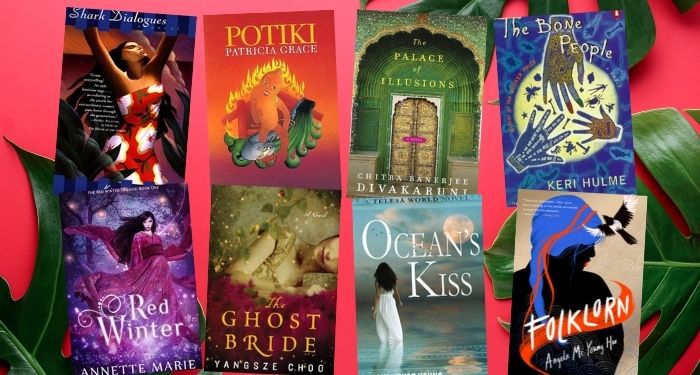
11 Books Based in AAPI Folklore
Never in my lifetime — I’m 31 for context — have I experienced more media and literature with a base in AAPI culture. Also for context, I’m a Korean American adoptee who grew up in Iowa with little to no representation or background on my birthplace for the majority of my childhood. In the last few years especially, I’ve noticed a significant increase in stories influenced by AAPI folklore — and for all age groups, too.
I think it’s also not unsurprising that this influx of stories is not completely representative of all AAPI cultures. Nowadays it’s much easier to find books about Korean/Japanese/Chinese folklore than say Afghani or Laotian or Samoan. This list is by no means exhaustive, but I wanted to be sure to create an inclusive list that shows how vast the AAPI label is and stresses how important it is that all of these countries, islands, and territories are given representation in today’s — and tomorrow’s — literature and media.
All of these books are absolutely worth a read and a re-read if you’ve already had the pleasure of devouring them once. And not just in May when we “officially” recognize the achievements and contributions of Asian Americans and Pacific Islanders, but all year round.
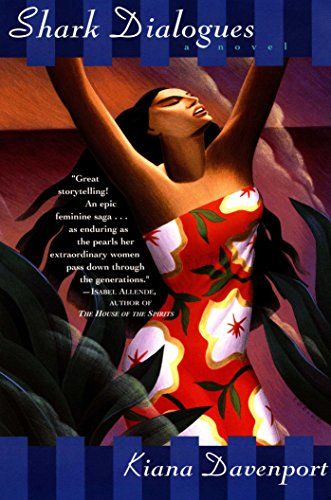
Shark Dialogues by Kiana Davenport
This book follows a Polynesian Hawaiian family through several generations, starting with the meeting of a white sailor and the daughter of a Tahitian chief. When our story starts, Pono, the family matriarch and pure-blooded Hawaiian, receives a visit from her four granddaughters, all of whom are of mixed parentage. Pono begins to tell them secrets of her childhood that she wished she told them earlier, interspersed with her own story of being born with mystical powers and the alienation she’s endured.

Potiki by Patricia Grace
Concentrating on the lives of multiple Maori people living in a community on the coast of New Zealand, Potiki constantly switches narrators as we meet a cast of characters who are threatened by a land developer who wishes to purchase the community. This is told primarily through the eyes of Roimata, who questions their ability to rebel against the developers and how best to care for her son, Toko, who appears to be able to predict future events.
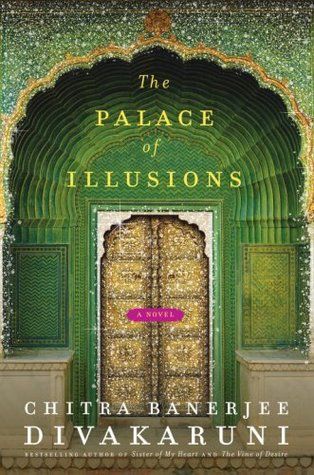
The Palace of Illusions by Chitra Banerjee Diavkaruni
A retelling of the Indian epic, the Mahābhārata, this book is told from the perspective of Panchaali, the wife of the Pandavas brothers. We follow Panchaali’s life, starting with her childhood and her strange birth and her experience as a woman with five husbands who is taken along for the ride, all the while harboring feelings for another.
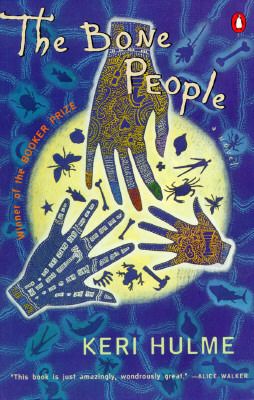
The Bone People by Keri Hulme
Kerewin has always felt in the middle, whether it’s her heritage (she’s part European, part Maori), her identity (she’s asexual and aromantic), or even her job (she’s an artist who can’t create). One night, she’s visited by a stranger who she later learns is named Simon, and his Maori foster father, Joe. The three of them become an unlikely trio of outcasts, representative of the fusion of Maori and European civilization and the healing — and pain — that comes with it.
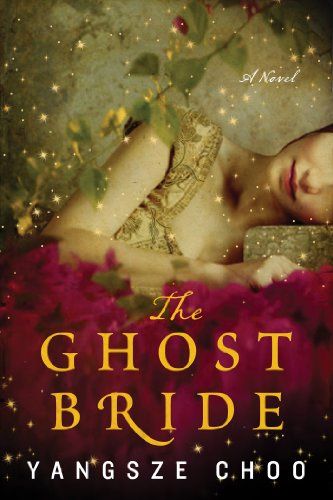
The Ghost Bride by Yangsze Choo
Based in Chinese folklore, this book has everything: romance, adventure, and mythical intrigue. Li Lan is from a well-off family, but their current bankruptcy has tossed her to the bottom of the list in terms of marriage matches. So when she is given a proposal to be a ghost bride for a powerful Lim family, she’s torn between the fight for her soul and security for life. Ghost marriages are typically used to placate the souls of the restless and recently deceased, and for Li Lan it might be worth it.
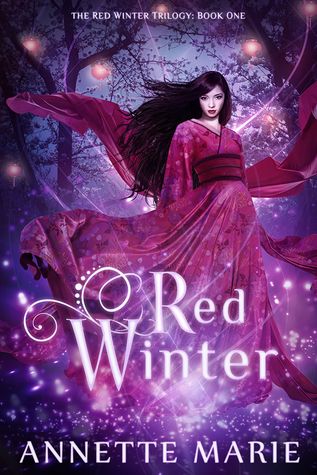
Red Winter by Annette Marie
The first book in a trilogy, Emi is destined to become a living host of a goddess and has long been in hiding to avoid the creatures who long to hunt her. But one day she saves the life of one of her hunters, a fox spirit by the name of Shiro, who now finds himself in her debt. Tricky thing is, Emi cannot reveal who she really is, or else Shiro would kill her. But she can definitely use Shiro’s skill to get her where she needs to go…can she keep her secret?
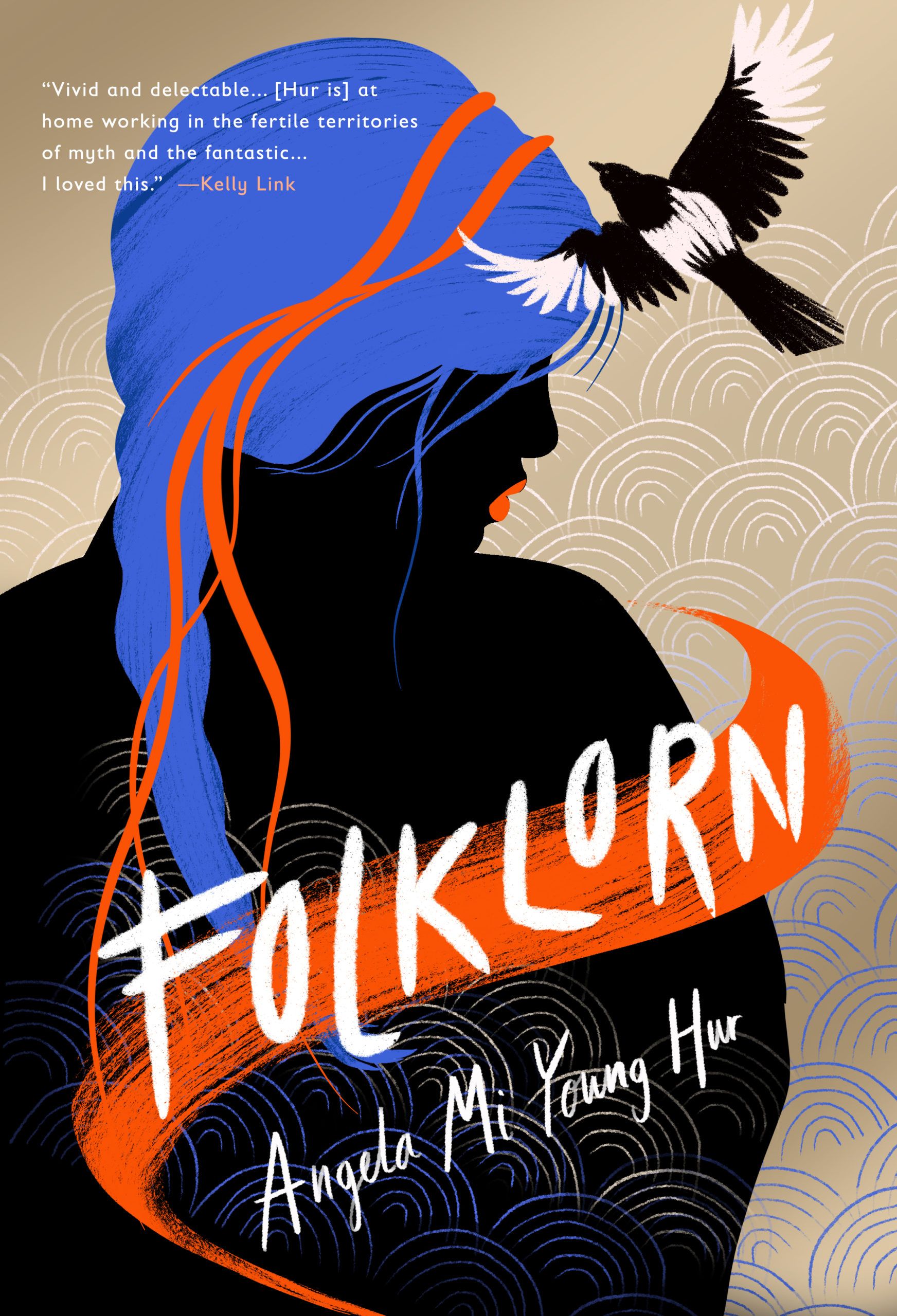
Folklorn by Angela Mi Young Hur
Elsa has devoted her life to her work as a particle physicist. Now stationed in the Antarctic, she’s almost positive she’s been able to escape her family’s ghosts, but then her childhood imaginary friend pays her a visit. A combination of circumstances require Elsa to return home and face the generations of trauma, mental illness, and ancestral curses that have been chasing her. What could this have to do with the Korean myths and legends her mother always warned her about?
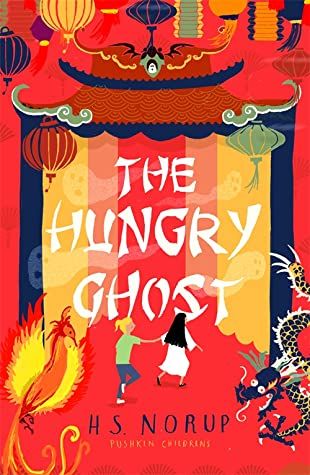
The Hungry Ghost by H.S. Norup
When Freja arrives in Singapore to spend the summer with her dad and stepmom, she learns that it is the month of the Hungry Ghost festival. During this month, spirits are said to freely roam the streets, and families must try to appease their dead ancestors. Freja is especially homesick and misses her mother, but then she starts to see a ghost of a girl with a white dress. The ghost’s name is Ling, and she learns that their pasts could potentially be connected.

Ocean’s Kiss by Lani Wendt Young
Inspired by Tongan and Samoan culture and mythology, this book takes a look at the real threat of climate change on the people who live in the Pacific. There are so many moving parts at play — whether it be family drama, supernatural beings, or the ways we all could be protecting the ocean. Our story centers on Daniel, a marine biologist who has kind of abandoned his Tongan heritage. But when an ancient weapon is unleashed on the island of Niua, Daniel has to decide to embrace Tongan culture or turn his back forever.
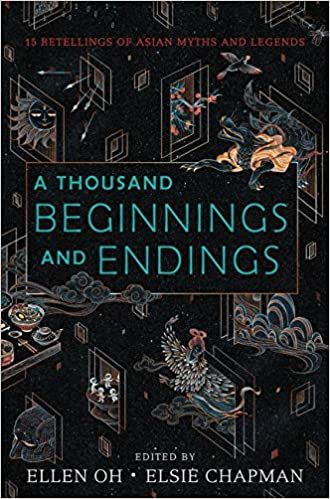
A Thousand Beginnings and Endings edited by Ellen Oh and Elsie Chapman
This might be kind of cheating, but this anthology of East and South Asian folklore is a perfect read for May. Fifteen best-selling authors have written unique short stories representative of their own cultures and backgrounds, including the talents of authors like Rahul Kanaki, Cindy Pon, and Roshani Chokshi.
Want more books based on AAPI culture or with AAPI main characters? Check out these other lists from Book Riot:

















